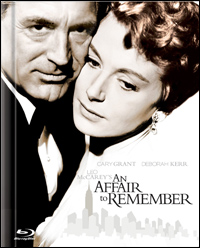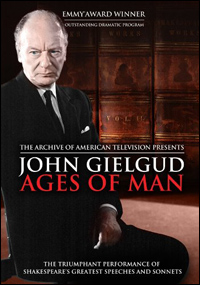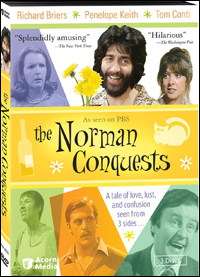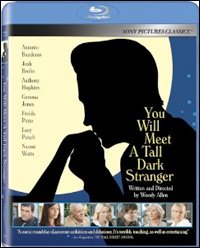
*
Joseph L. Mankiewicz's 1950 backstage classic All About Eve [Fox] retains its powers in the new Blu-ray release. This is one of those films that, as they say, needs no introduction; not to my readership, it doesn't. It has been years since I've watched Margo & Eve and the rest; on this viewing I was especially impressed with the performances of George Sanders as the critic Addison DeWitt, especially in the scene in which he unmasks and defeats the seemingly unstoppable Eve Harrington; Thelma Ritter, as Margo's loyal but caustic dresser Birdie; and, surprisingly enough, Marilyn Monroe as Miss Casswell, the Copacabana-trained starlet. The as-yet-unknown Monroe gives a witty and knowing comic performance. One wonders just how much she was noticed at the time; Twentieth Century Fox was impelled to sign her to a long-term contract, but could they have had any idea what they were getting?
Bette Davis and Anne Baxter are there too, of course, as is Celeste Holm. Celeste, in a decidedly supporting role, shared star billing above the title with Davis and Baxter; I suppose this was because she walked in with a 1947 Oscar and a likely shot at the 1949 award, which she didn't ultimately win, for "Come to the Stable." Holm got a third nomination for "All About Eve" — three in four years! For "Eve," she was competing in the supporting category against Ritter; Davis and Baxter battled each other for Best Actress. All four lost, to actresses recreating their roles in two of Broadway's longest-running comedies of the 1940s: Judy Holliday in "Born Yesterday" and Josephine Hull in "Harvey." Sanders won the supporting actor Oscar, though; Mankiewicz won two, as director and author, with the film taking the Best Picture nod as well.
Also on hand, as the dinner speaker in the opening and closing sequences, is the very very very old Walter Hampden (back in the days when 70 was still considered to be very very very old). Hampden was one of the last, and one of the most durable, actor-managers of the American stage; he was best known, perhaps, as the finest American "Cyrano" — at least until Jose Ferrer came along with his version in 1946. Hampden capped his Broadway career in 1953 as Deputy-Governor Danforth in Arthur Miller's "The Crucible." Here he gives a speech awarding Eve Harrington with the Sarah Siddons Award.
This Sarah Siddons section might be confusing to some viewers; I mean, what are Eve and Margo and everyone doing in Chicago? It turns out that Mankiewicz simply made up the Sarah Siddons Award, naming it after the 18th-century tragedienne. Two years after the film opened, some Chicago society folk decided to adopt the award and have been giving it ever since. (In one of the several Blu-ray bonuses, an official from the Sarah Siddons Society tells how they gave the award in 1973 to Bette Davis herself — who was furious to find that they had brought in Anne Baxter as a surprise speaker!) Theatre fans who like to scour movies for footage of old-time Broadway will be rewarded with a view — fleeting, but authentic — of the old Klaw Theatre. As in Klaw & Erlanger, the showmen whose grasping syndicate was overtaken by the Shuberts. The Erlanger is now called the St. James. Marc Klaw's house was on the plot just west of the Imperial, where there now sits a parking lot that many of us use as a shortcut between 45th and 46th. "All About Eve" used the Golden as an exterior location. (The interiors were shot not in New York but at the Curran Theatre in San Francisco. They also visit the Shubert in New Haven.) There are two 45th Street sequences — one night, one day — in which we can glimpse the marquees for Lost in the Stars at the Music Box, Miss Liberty (with, curiously enough, "dances by Jerome Robbins" in electric lights) at the Imperial, and the Maurice Evans production of The Devil's Disciple at the Royale. Which dates the location shooting to a six-week window centering on March 1950. The house directly across the street from the Golden — you can make out its then-name, "Columbia Radio Theatre" on the Blu-ray — is the former Klaw.
 |
But the 1957 version is the finest, a true romance in the best old-fashioned sense. Bonuses include audio commentary by Marni Nixon, who dubbed Ms. Kerr's singing (as she had the year before on "The King and I").
*
 |
Ages of Man was televised in 1966, receiving an Emmy; producer David Susskind gladly accepted it, berating the voters in his speech for overlooking Gielgud in the acting category. The program was telecast in two one-hour segments, on consecutive Sundays in January. The televised Ages of Man [E-One] has now been issued on DVD as part of the invaluable string of programs being rescued under the sponsorship of "The Archive of American Television Presents." Ages of Man is, needless to say, thoroughly fascinating; Gielgud's instant transitions from one speech to another are astounding. But then, that's precisely what you would expect, isn't it? That said, the visual quality is poor, especially the first part; Gielgud often looks like he is surrounded by a phosphorescent glow. But the magic is in the words, and Gielgud delivers Shakespeare in Ages of Man.
*
 |
New York playgoers who appreciated the puzzle put together by Mr. Ayckbourn — despite the production itself — were rewarded when the 1977 television version of The Norman Conquests [Acorn] was broadcast here on Public Television. With an authentic British cast speaking authentic British accents and acting authentically British — and without the actor-to-actor conflicts which apparently helped scuttle the U.S. production — "The Norman Conquests" was a delectable six-hour delight.
The TV "Norman" has now been released here on DVD, and about time, too. Yes, Matthew Warchus' revival of The Norman Conquests played at Circle in the Square in the spring of 2009, and it was altogether lovely. But you can't see that production now, today; and you can simply pop the DVD in your disc player and sit back to enjoy Table Manners, Living Together and Round and Round the Garden. And having purchased the trilogy and watched it, you can then go back and watch Table Manners over again; the best gags really do work on three levels. What's more, you get a fine bunch of actors. Penelope Keith, the one holdover from the original West End cast, is perhaps the funniest; she won the BAFTA Best Actress Award for this, and no wonder. Tom Conti, as Norman, went on directly to star in the London and Broadway productions of Whose Life Is It Anyway? Penelope Wilton (Annie), Richard Briers (Reg), Fiona Walker (Ruth) and David Troughton (Tom) round out the cast. And they all have their moments, quite a few of them.
"The Norman Conquests" comes from Acorn Media, who have recently provided us with hours and hours of enjoyable viewing with the multi-DVD sets of the Stratfordian "Slings and Arrows" and Helen Mirren's "Prime Suspect." Now we get "Norman" — and Acorn has yet another landmark set coming up next month!
 |
Mr. Allen sees fit to explode every character's existence and then end his film without resolving matters. Yes, I suppose that's the way things are in real life. But it doesn't make for a very satisfactory film-watching experience, not for me anyway.
*
The "Glee" franchise has been so successful that the producers have discovered they can take their episodes to the home entertainment market not on a season-by-season basis but by the half-season. Are fans eager to buy ten episodes of "Glee" now and splurge for the full season later? The answer seems to be: absolutely. More than enough purchasers to make for a lucrative practice, at least. Glee: Season 2 Volume 1 [Fox] is here, and I suppose it is selling like proverbial hot cakes. (How fast do hot cakes sell, anyway?)
(Steven Suskin is author of the recently released Updated and Expanded Fourth Edition of "Show Tunes" as well as "The Sound of Broadway Music: A Book of Orchestrators and Orchestrations," "Second Act Trouble" and the "Opening Night on Broadway" books. He also pens Playbill.com's Book Shelf and On the Record columns. He can be reached at [email protected].)
*
Visit PlaybillStore.com to check out theatre-related DVDs for sale.



Evan-Zimmerman-for-MurphyMade.jpg)





